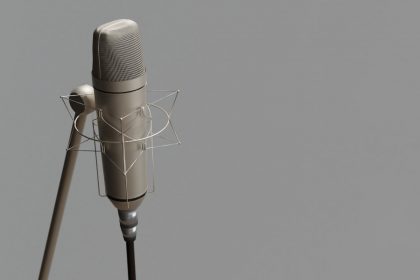Japanese anime has long been an avenue for exploring complex themes and social issues. One such topic that has garnered attention is the portrayal of gender identity disorder in anime. In this article, we will delve into the world of “Onimai!: I’m Your Sister Now” and examine the Japanese laws relating to gender identity disorder depicted in the series. By exploring the captivating story of the protagonist’s transformation and the legal complexities faced by transgender individuals in Japan, we can gain a deeper understanding of the societal barriers and the impact of representation in anime.
The Intriguing Premise of “Onimai!: I’m Your Sister Now”
At the heart of “Onimai!: I’m Your Sister Now” lies a unique and captivating premise. The story follows Mahiro, a man who wakes up one morning to find himself transformed into a girl. This sudden change in Mahiro’s physical appearance presents a series of challenges and opportunities. Initially, Mahiro grapples with a sense of discomfort and confusion, struggling to reconcile their new gender identity with their previous self. However, as the story progresses, Mahiro begins to embrace their transformation and finds a newfound sense of freedom. This anime explores the complexities of identity and the fluidity of gender, inviting viewers to question societal norms and expectations.
Mahiro’s Journey and the Freedom of Transformation
Mahiro’s transformation into a girl becomes a catalyst for personal growth and self-discovery. What initially seemed like an obstacle soon becomes an opportunity for liberation. Prior to the transformation, Mahiro was burdened by societal expectations and the pressure to live up to their sister’s exceptional abilities. The weight of these expectations led them to withdraw from society and become a recluse. However, the transformation into a girl allows Mahiro to shed those expectations and redefine their own path. Freed from the pressure to conform, Mahiro embarks on a journey of self-acceptance and empowerment. They find solace in being able to challenge themselves on their own terms, unencumbered by the preconceived notions of others. Through this transformation, Mahiro discovers the strength to reenter society on their own terms.
The Complexities of Legal Gender Identity in Japan
While “Onimai!: I’m Your Sister Now” presents a compelling narrative of personal transformation, it also sheds light on the legal complexities surrounding gender identity in Japan. Legal gender recognition is a significant aspect of an individual’s identity, affecting various aspects of their life, including healthcare, employment, and personal relationships. However, Japan has traditionally maintained strict requirements for changing one’s legal gender marker. Transgender individuals face significant challenges in obtaining legal recognition that aligns with their gender identity. This misalignment between physical appearance and legal documentation can lead to difficulties in accessing essential services and societal acceptance.
The Special Act and Changing Gender Identity
To address the challenges faced by transgender individuals, Japan enacted the “Act on Special Cases in Handling Gender for People with Gender Identity Disorder.” This legislation provides a legal framework for changing gender markers. The process involves three essential steps: diagnosis of gender identity disorder, undergoing medical intervention, and obtaining a ruling from a family court. While the Special Act offers a pathway for legal recognition, it still places considerable emphasis on medical diagnosis and intervention. This requirement has been a subject of debate, as it may pose challenges for individuals who do not wish to undergo medical procedures or who identify outside the binary understanding of gender.
Limitations and Societal Barriers
While the Special Act provides a mechanism for legal gender change, it is not without its limitations. The act only addresses gender binary and does not recognize non-binary or other gender identities. This exclusion contributes to the marginalization and erasure of individuals whose identities do not conform to traditional norms. Furthermore, even with legal recognition, transgender individuals in Japan face numerous societal barriers. Discrimination in healthcare, employment, and marriage persists, hindering their full inclusion and participation in society. Additionally, the absence of legal recognition for same-sex marriage further compounds the challenges faced by transgender individuals in forming meaningful relationships.
The Impact of “Onimai!: I’m Your Sister Now” and Representation
“Onimai!: I’m Your Sister Now” serves as a thought-provoking piece of media that contributes to the representation and understanding of gender identity disorder. By exploring Mahiro’s journey and their transformation, the anime offers a nuanced portrayal of the challenges and triumphs experienced by transgender individuals. It provides a platform to foster dialogue and raise awareness about gender identity issues in Japan. Representation in anime plays a vital role in shaping societal perceptions and promoting acceptance. Through diverse narratives and relatable characters, anime has the power to challenge stereotypes, break down barriers, and create a more inclusive society.
FAQs Onimai: I’m Now Your Sister! and Gender Identity Disorder in Anime
- What is gender identity disorder?
Gender identity disorder, also known as gender dysphoria, refers to the distress or discomfort experienced by individuals. Their gender identity does not align with the sex they were assigned at birth. It is characterized by a deep desire to live and be recognized as a different gender. - How does the Special Act in Japan help transgender individuals change their legal gender?
The Special Act in Japan provides a legal framework for transgender individuals to change their legal gender markers. It involves a three-step process: diagnosis of gender identity disorder, medical intervention, and a family court ruling. While the act offers a pathway for legal recognition, it has been criticized for its emphasis on medical diagnosis and the exclusion of non-binary and other gender identities. - What challenges do transgender individuals face in Japan regarding medical treatment?
Transgender individuals in Japan often face challenges in accessing appropriate medical treatment. Limited availability of specialized healthcare providers and long waiting lists for gender-affirming procedures are common issues. Additionally, the requirement for a medical diagnosis of gender identity disorder can create barriers for those who do not wish to undergo medical interventions. - Are transgender individuals in Japan able to legally marry?
Currently, transgender individuals in Japan can legally marry a person of the opposite sex after changing their legal gender. However, the lack of legal recognition for same-sex marriage poses challenges for transgender individuals who wish to marry someone of the same sex. - How does “Onimai!: I’m Your Sister Now” contribute to the representation of gender identity disorder in anime?
“Onimai!: I’m Your Sister Now” contributes to the representation of gender identity disorder. In the anime by portraying the personal journey of Mahiro, the protagonist, who undergoes a transformation from male to female. The anime explores the challenges, emotions, and growth experienced by transgender individuals, thereby fostering understanding and raising awareness about gender identity issues.
Conclusion
The portrayal of gender identity disorder in anime, such as “Onimai!: I’m Your Sister Now,”. Provides an opportunity to delve into the legal and societal complexities surrounding gender identity in Japan. By examining the transformative journey of characters like Mahiro, we gain insight into the challenges faced by transgender individuals and the need for legal recognition and acceptance. Anime serves as a powerful medium to challenge norms, promote inclusivity, and foster dialogue about important social issues. Through representation and thoughtful storytelling, we can strive towards a more understanding and inclusive society for all.













